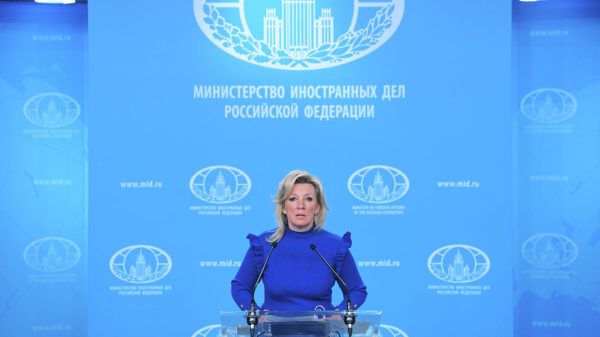 Farmers display their tractors in front of the state parliament in Kiel, Germany Photo: CHRISTIAN CHARISIUS/DPA
Farmers display their tractors in front of the state parliament in Kiel, Germany Photo: CHRISTIAN CHARISIUS/DPA
Thousands of German farmers blocked highways on Monday and city centers across the country as a week of protests began against government proposals to cut fuel subsidies.
In a coordinated nationwide demonstration, angry farm workers lined up their tractors near Berlin's Brandenburg state. Gate, and more than a thousand people gathered on one section of the motorway near Mainz.
On Monday morning, police also opened an investigation into piles of manure that had been dumped near polling stations of Germany's main coalition parties, including Chancellor Olaf Scholz's centre-left SDP party.
In a sign of growing public discontent with Mr Scholz, The protests came despite the German government announcing a partial reversal of controversial plans to cut tax breaks and fuel subsidies for farmers.
German farmers protest against cuts in transport tax subsidies near the Siegestor Victory Gate in Munich. Photo: LEONHARD SIMON/REUTERS
The funding cuts came as the chancellor struggled to fill a huge hole in the German economy late last year. the government budget, which was created as a result of a surprise court decision that prohibited ministers from using funds received during the pandemic to support future projects.
Scholz's coalition had originally planned to end diesel subsidies for agriculture and vehicle tax breaks for farmers, but after protests by big farmers in December they abandoned the latter policy.
They also softened the diesel proposal to allow subsidies
But this has not appeased the German farmers' association, which has vowed to unleash protests «the likes of which the country has never experienced before.»
p>
Wearing colorful jackets and standing next to their tractors on a frosty Monday morning, some farmers cited foreign food imports as another factor in their decision to strike.
 Farmers are causing traffic chaos by protesting by driving their tractors along the Mittlerer ring road around Munich. Photo: FRANK HERMANN/AVALON
Farmers are causing traffic chaos by protesting by driving their tractors along the Mittlerer ring road around Munich. Photo: FRANK HERMANN/AVALON
“I'm here because we are food producers and food must come from home. Otherwise we become more dependent [on food imports from abroad],” Markus Werner, 59, a vegetable farmer, told German tabloid Bild.
“Food comes from abroad without checks.” and, for example, with pesticides. It just makes us more dependent, it’s like an energy transition,” he added, apparently referring to Germany’s shift away from dependence on cheap Russian gas.
“The anger is very great because something is always being decided. first and then think about it,” Mr. Werner said of the government's policy.
Later on Monday, Mr. Scholz's administration announced there would be no further changes to its policy, risking further anger from farmers .
“There are no intentions in the government to change anything,” the representative said.
It comes as ministers and union leaders warned the protests could be hijacked by the far right. Far-right parties were reported to have joined the demonstrations in some regions.
In Saxony, the Free Saxons, a separatist extremist movement, rallied near the Semperoper opera house. The neo-Nazi Third Way party also posted on its website a call for its supporters to join the farmers.
“No beer without farmers”
In addition, the far-right AfD party has joined some protests in support of farmers. obvious discomfort among German farmers' associations, which fear their protests over subsidies could be hijacked by groups with other agendas.
«No beer without farmers,» warned one tractor seen at the demonstration, while another was seen carrying an AfD poster on the back that read «Our farmers come first!»
Robert Habeck, vice-chancellor of Germany's Green Party, warned that «coup fantasies are spreading, extremist groups are forming and ethnic nationalist symbols are being openly displayed.»
Mr Habeck's holiday was disrupted by -over Christmas, when protesters tried to storm the ferry he was traveling on.
Germany is generally considered more strike-prone than neighboring France due to the historically very close and consensual relationship between industry leaders and the government .< /p>
However, a recent rise in disputes over wages and working conditions has meant that strikes have become much more common, increasing tensions over soaring living costs, an energy crisis and a weakening German economy.
>Later this week, Germany is potentially facing another wave of strikes by rail workers and truck drivers, leading to even more transport chaos.
The strikes are planned separately from the farmers' protests and are focused on the dispute over the railway. roads. workers' wages and the recent increase in truck tolls.


























































Свежие комментарии